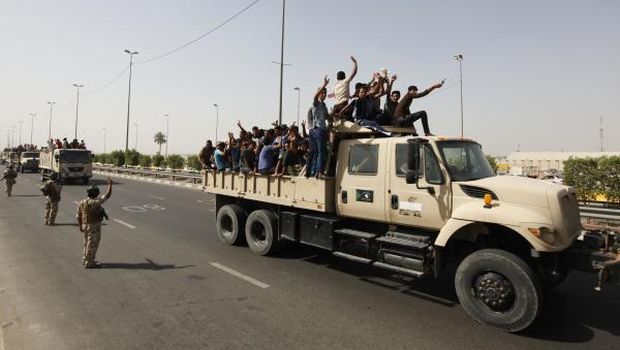During my service in the Iraqi armed forces, the country witnessed flurries of successes and failures. Despite all this, I never felt that the fate of the country was under threat. Despite the complex circumstances that followed the fall of Mosul into the hands of the Islamic State of Iraq and Syria (ISIS), my confidence in Iraq’s ability to overcome one of the most serious crises in our history has not been shaken. Those hoping to fragment Iraq into several different states will ultimately have their hopes dashed and their erroneous and backward mentalities exposed. Such hopes have brought nothing but disaster and chaos to the demographic these people claim to be defending.
There is a military saying that goes: “An army marches on its stomach,” in reference to the military’s need for financial support. Iraqi oil facilities, from production points to export sites, are predominately located in safe areas and are unlikely to fall prey to violence and conflict while Iraqi oil is significant and indispensable to the world at large. Based on all this, Iraq will not face any major fiscal problems as a result of the ISIS advance, no matter how long the conflict drags on. Therefore, Iraq will be able to secure the requirements of war no matter the costs. This will also prompt allies to deepen the state of cooperation with Baghdad in the hopes that this will have a positive outcome for them in the future.
Before the events in Mosul, the Iraqi army consisted of around 15 military divisions. If, for the sake of argument, we say that approximately 20 percent of Iraq’s military equipment and capabilities have been lost, what remains should be more than sufficient to reorganize forces and secure an effective, strategic defense. This is, of course, not to mention the emergence of new military reinforcements. According to traditional military calculations, a group of ten combat-ready divisions equipped with modern weapons and military equipment represents a major force to be reckoned with for any terrorist group. This is not to mention the Sukhoi-25 fighter jets that have recently been added to the Iraqi military arsenal and which allow it to bring unassailable aerial firepower to the conflict.
The main point of imbalance, which blurred the general view of the situation, was related to determining the precise identity of the forces that attacked Mosul. The ability to understand and assess the situation remains the most important thing, but this was distorted given the unexpected shock of ISIS’s advance. However, when ISIS began to bomb religious shrines, including the shrines of prophets in Mosul—which is known as the city of prophets—talk that the Islamist group made up only a small proportion of the armed fighters that had overrun the city proved to be mere fantasy.
With the pain of the Syrian tragedy still strongly felt in the country, particularly following the heinous crimes committed by ISIS there, Iraqis have had an early wakeup call and are now seeking to contain the threat represented by this terrorist group.
In my view, the situation unfolding in Iraq today favors the state and government, which will be victorious against ISIS. This is based on the state’s financial resources and manpower, as well as its commitment to avoiding a repeat of the Syrian scenario, and Baghdad’s regional and overseas allies and support. In addition to this, based on demographic reasons, ISIS cannot capture more than half of Iraqi territory in any case, while the group is now increasingly spreading itself thin.
All of this only serves to consolidates the will of both the Iraqi general public and government to confront ISIS, which in turn further prompts allies to provide support. However, maintaining success requires an ongoing adoption of measures that prevents sudden threats to sensitive areas.
The current situation in Iraqi Kurdistan appears to be stable. But one can hardly expect a semi-autonomous region like this to remain stable in the midst of this turbulent environment. ISIS’s inevitable failure to capture Baghdad and Samarra will prompt the Islamist group to put pressures on the Kurdistan region, regardless of whatever calculations Erbil has made.
Iraq possesses all the elements required to achieve military superiority over ISIS. Iraq’s military power is growing stronger with every day that passes. On the other hand, the infighting between ISIS and other affiliated armed groups will end their temporary accord of interests and put even more pressure on the Islamist militant group. In my view, Iraq’s victory over ISIS is inevitable.

Trackbacks/Pingbacks